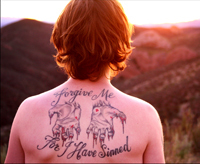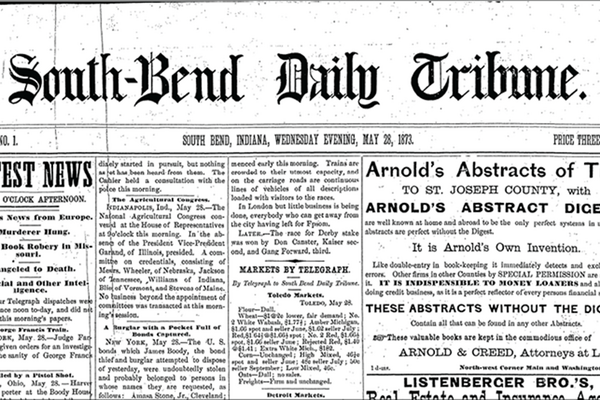
Olivier Morel’s film On the Bridge, about veterans suffering from post-traumatic stress disorder (PTSD), has been selected for more than a dozen festivals, won multiple awards, and has been the subject of countless media interviews since its fall 2011 release.
But all of that recognition pales in comparison with a chain of events that occurred earlier this year, the director and Notre Dame faculty member says.
A veteran who had served with one of the men featured in the documentary saw the trailer online and wrote Morel to ask for his fellow Marine’s contact information. Morel put the two men in touch—and then learned the next day that the man who made the request had been on the verge of suicide.
As Ryan Endicott, who served with the man in Iraq, wrote in an email to Morel, “Your film may literally have just saved the life of a veteran in need. Just the trailer was all it took to give a veteran in desperate need hope that people are working for change.”
Morel, the associate director of Notre Dame’s Ph.D. in Literature program and an assistant professional specialist in French, says he sincerely appreciates the many professional accolades his film has received—“but this is something else.”
Making an Impact

A feature-length film that follows several Iraq and Afghanistan veterans’ struggle to return to life after war, On the Bridge debuted last fall on the European public television channel ARTE. Since then the film has had 13 official selections for festivals around the world, including the Chicago International Film Festival. With several official selections and awards still pending, it already has won four awards. Among them: Best Documentary Feature International at the Uptown Detroit Film Festival, the Award of Excellence at the Los Angeles Movie Awards and Best of the Fest, Feature Documentary at Chicago’s Peace on Earth Film Festival.
The film also has become a powerful addition to Morel’s teaching in Notre Dame’s College of Arts and Letters as well as the impetus for screenings, conversations, and charitable events across the country.
In February, the film and a panel discussion were part of the ScreenPeace Film Festival at Notre Dame’s Kroc Institute for International Peace Studies. In March, a group of veterans in Wisconsin held a screening to benefit the local food pantry. And a group of Notre Dame students organized a screening and concert by a veteran who plays guitar and sings in the film. Proceeds from that April 13 event will benefit homeless veterans.
“This is the sort of thing that I wanted to see happen,” Morel says. “More and more people are coming to me and saying ‘I know someone who’s been deployed. I know he or she is not doing well, but we don’t talk about it.’ Then after watching the film, they understand why (the veteran) is not doing well, why they don’t want to talk—but still need help.”
Taking it Further
The interest in the film has been so strong and so rewarding, Morel says, that he plans to continue his work on this subject.
Already, he is writing the scenario for a graphic novel that will include veterans’ stories he wasn’t able to use in the film—including the story of the veteran who contacted him hoping to reconnect with a fellow Marine. It will feature the artwork of well-known French illustrator Mael, aka Martin Leclerc, and will be published by French publisher Gallimard-Futuropolis.
Morel is also finding new ways to incorporate the film, and other work about trauma, in his literary criticism seminar at Notre Dame.
“This is a subject that still needs to be unveiled,” he says.


